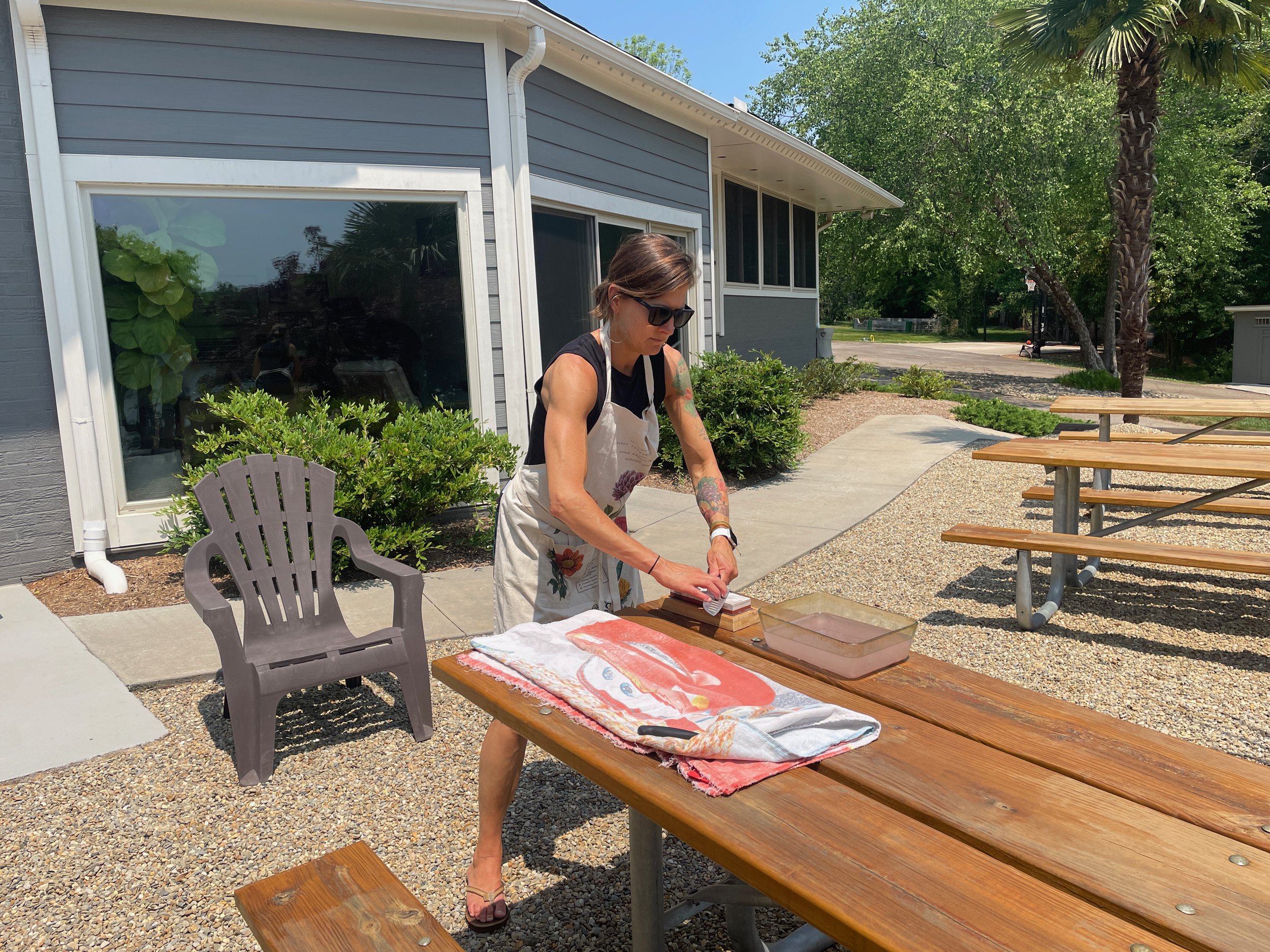Dear Readers,
I realized there are a few more of you reading this than I thought. Hi Sarah P! Hi Mimi! Hi Aunt Kathryn! Hi Mama! It’s nice to know who I’m actually writing to when I write these letters. I am glad you’re all here. I thought it would be fun to sometimes interrupt my letters to you with a letter to a specific friend that contains things I would also like the rest of you to know. So I will try it today and see how it goes.
Dear Natalie,
I’ve probably told you this before, but I have five favorite books. I took a picture of them to show you. (If you’re wondering where Anne Lamott is, she gets Favorite Writer status.) One of the books, The Supper of the Lamb, is one we were recently talking about because I said that the author’s views on feasting and fasting had really impacted my own ideas on these subjects. I love what he says about bread; about feeding, but not cooking for, one’s children; about wine; about dinner parties; and especially about the balance of feasting and fasting. You asked me if I would tell you one of my takeaways from the book, so I spent some time last night finding the lines I wanted to share.
“Let us fast, then - whenever we see fit, and as strenuously as we should. But having gotten that exercise out of the way, let us eat….Above all, give us grace to live as true men - to fast till we come to a refreshed sense of what we have and then to dine gratefully on all that comes to hand. ”
“My vow, therefore, was beautifully simple: If I ate, I would eat without stint; and if I stinted, I would not eat at all.”
“Great cooking demands great eating; that is as it should be. But such frank eating, unless we are all to swell up and burst, must be a sometime thing. As I said, I would rather have one magnificent meal followed by a day of no meals at all, than two days full of ambitious mediocrities at close intervals. In this vale of sorrows, we should be careful about allowing abundance to con us out of hunger.”
I could keep going, but that’s probably enough to give you the idea of the kinds of things he says about eating and also not eating. He writes, too, of the value of both festal eating (the feasts, the celebratory meals) and ferial eating (the ordinary, everyday meals). The fact that Capon was an Episcopal priest makes me like him even more, but it is his brilliant treatises on food and cooking and eating that has put this book in my top five forever. Capon has given me reason to eat eat (yes, repeated on purpose) and to take time off from eating. It feels good and right to have both in my life.
What also feels good is to have sharp knives. That is another thing I remembered Capon wrote about in The Supper of the Lamb when I was going back through the book to find quotes for you. I can proudly say I have finally learned to sharpen my own knives (on the first Thursday of each month!) and now I get to experience on a daily basis the joy that this simple practice brings. Why, oh why, did I wait so long to learn this skill?
“Blessed is the woman whose husband surreptitiously touches up her knives. It may cost her a few surprise cuts now and then, but they are a small price for perfection. Thrice blessed, though, is the woman who does the job herself.”
I’ll leave you with one more quote from the book because I remembered I had put this on my quote board one time in the past. I looked at the date the photo was taken - four years ago this month! Wow. I love when words keep giving for years.
Thank you for asking me this question, Natalie, because it reminded me again of the impact this book has had on me. And tell me, anyone else, if you’ve read The Supper of the Lamb. I would really like to know!
Love, Ginger



